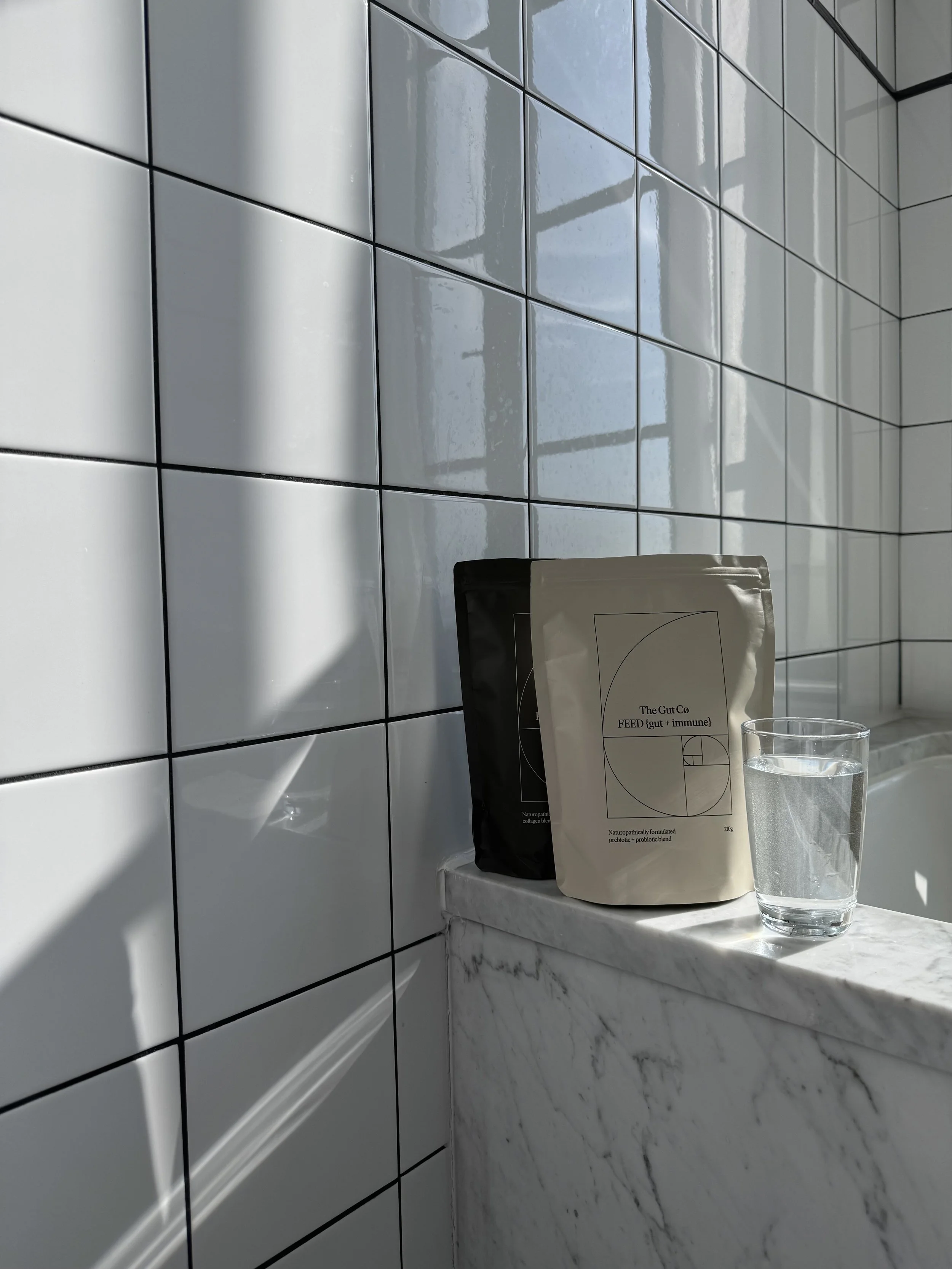3 Really Simple Ways to Support Your Gut Health While Traveling
Traveling, especially long flights, can be tough on your body — and your gut is often the first to feel it. Between dry cabin air, low pressure, stress, and a lack of movement, it’s no wonder digestion slows down, leaving you feeling bloated, sluggish, and uncomfortable. The good news? A little preparation and a few mindful habits can make all the difference.
Think of it as preventing “gutlag” — that feeling when your digestion struggles to keep up with your travel schedule. From staying hydrated and prioritising fibre — to keeping stress in check — these simple strategies will help you land at your destination feeling lighter, more energised, and ready to enjoy your trip. Here's how to keep your gut happy and your digestion on track wherever your travels take you.
How to Avoid the Dreaded “Gutlag”
Dehydration from dry cabin air and low cabin pressure can slow digestion and cause bloating, while prolonged sitting reduces intestinal movement (peristalsis), leading to constipation. Staying hydrated, moving regularly, and maintaining digestion-friendly habits can help prevent these issues during flights. Here are a few tips that can help you navigate post-flight gut issues.
Bring a shaker bottle with a scoop of FEED (prebiotic fibre and probiotics). Once you are through the security you fill it up with 400mL of water and start sipping it. FEED is high in prebiotic fibre, which draws water to the stool in your intestines and prevents constipation. FEED also contains probiotics which enhance the good bacteria and fight any bad bacteria that may come your way. Bringing your own bottle also ensures you will always have enough water available to you as you don’t need to ask the flight attendant to fill your water glass and it enables you to keep track of how much water you have consumed.
Get up and move around frequently, if walking is limited try and stand in one spot and do calf raises or walk in place.
Bring fibre rich snacks such as nuts and fruit. Airplane food is void of fibre so eating less of this and more of a wholefood alternative will improve your digestion
Avoid alcohol and soft drinks as they dehydrate you further. Stick to clear beverages like water, or watered down fruit juice, to keep you hydrated.
If stress or anxiety creeps in during your travel, learn how to do breath work that you can practice anywhere — like box breathing. Managing stress can go a long way in helping your digestive system stay on track.
When you arrive at your destination take FEED twice daily for the first 5-6 days to ensure bowel movement and enhance the good bacteria as these will help fight off any pathogens or foodborne bacteria. If you are traveling in a third world country, I would recommend you continue FEED twice a day for the entirety of your stay, otherwise you can go back to the maintenance dose of once per day.
Things to Avoid When Traveling for Gut Health
When traveling we tend to eat out a lot more than usual, so making a conscious decision to eat well can help to improve bloating and indigestions. Avoid processed and fried foods and opt for meals that include lots of vegetables (high in fibre and water), clean protein and complex carbohydrates such as sweet potato and red or black rice.
If you are traveling to a third world country or areas where hygiene is less than optimal, avoid drinking tap water, ice, eating salads, raw vegetables, unpeeled fruits and undercooked meats to prevent foodborne illness and digestive issues.
If spicy foods are not something you are used to, go easy as too much spice can cause a lot of digestive discomfort.
What You Can Do If Digestive Issues Strike While Traveling
If you get caught out and find yourself in digestive trouble on your travels, here are things you can do locally to help ameliorate the symptoms:
Herbal tea; look for chamomile and/or peppermint as they both can ease bloating and gas, reduce stomach pain and improve overall digestions.
Electrolytes in powder or tablet form. If this is unavailable buy coconut water. Electrolytes will help you use the water you drink better, helping to reduce dehydration.
Prune juice is a natural laxative rich in fibre and sorbitol, which stimulates the intestines if you’re feeling backed up.
Chia Seeds and Flaxseeds are packed with fibre and can help to alleviate constipation, but make sure you increase water intake when you add more fibre to your diet.
Ingesting fermented foods such as sauerkraut and unsweetened yoghurt can help to alleviate constipation. However, if you are experiencing stomach upsets due to a foodborne illness, adding fermented food is not a good idea.
Prevention is the Best Cure
If possible try to prepare your gut before you go. This can be anything from 1-6 weeks prior. You want to start priming your gut flora with lots of prebiotics and probiotics to increase the ratio of good to bad bacteria as a healthy ratio enhances the defence against foreign pathogens, meaning less infections and less likelihood of food poisoning. It also means you’ll have better digestion and less tendency to constipation while you’re on your trip. Bon voyage!
The founder of The Gut Co and writer for this article is naturopath Pernille Jensen, she has been researching the gut microbiome and the relationship between gut function and the rest of the body for over a decade.



